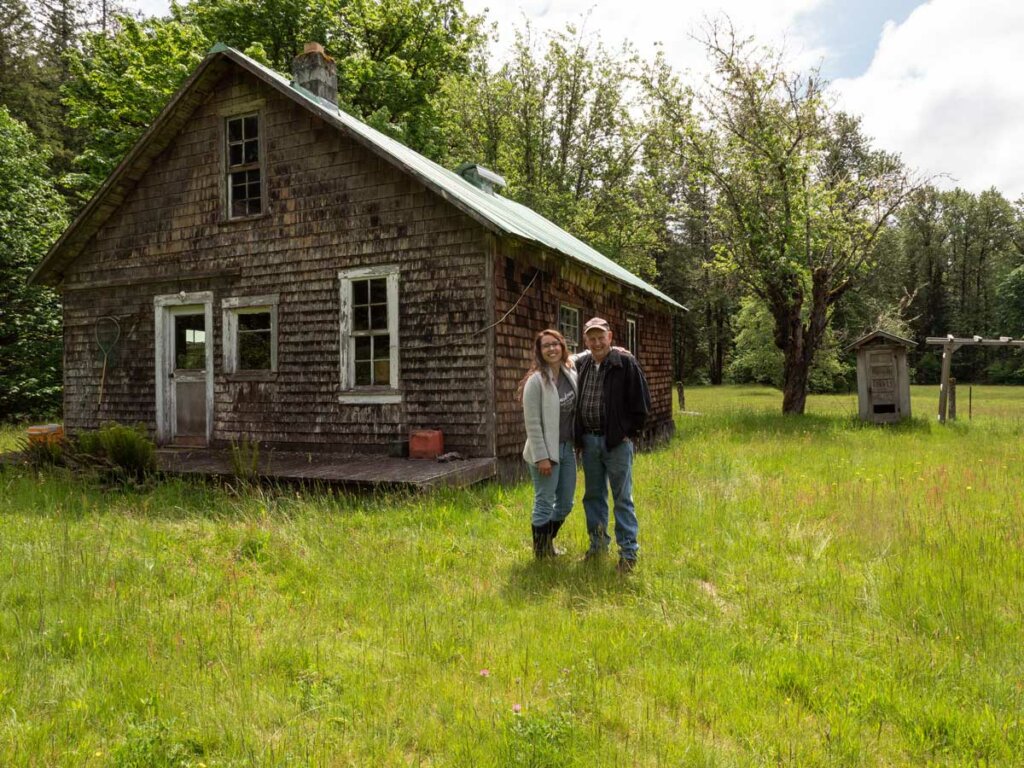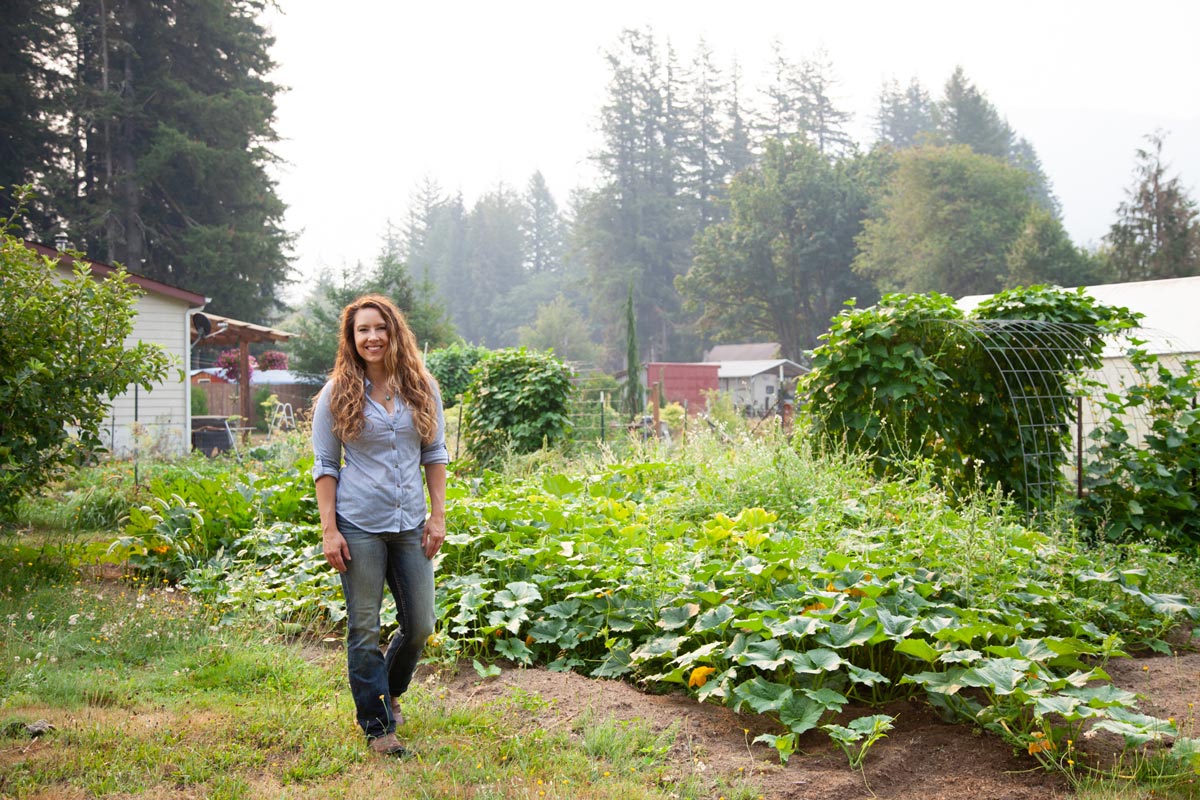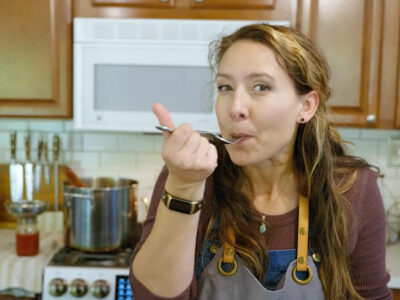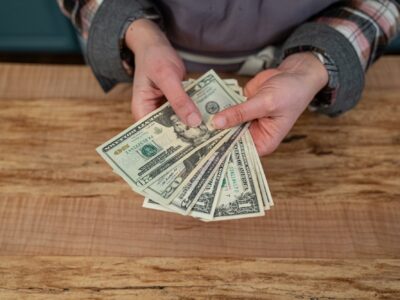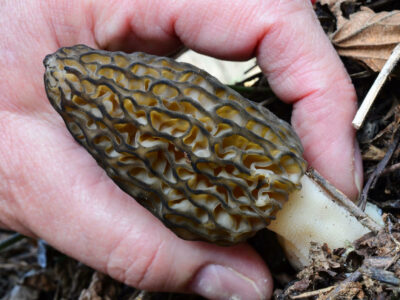Does homesteading really save money? This is the “ elephant in the room question” amongst homesteaders. In my opinion the answer is it depends. Let’s dive into it together!
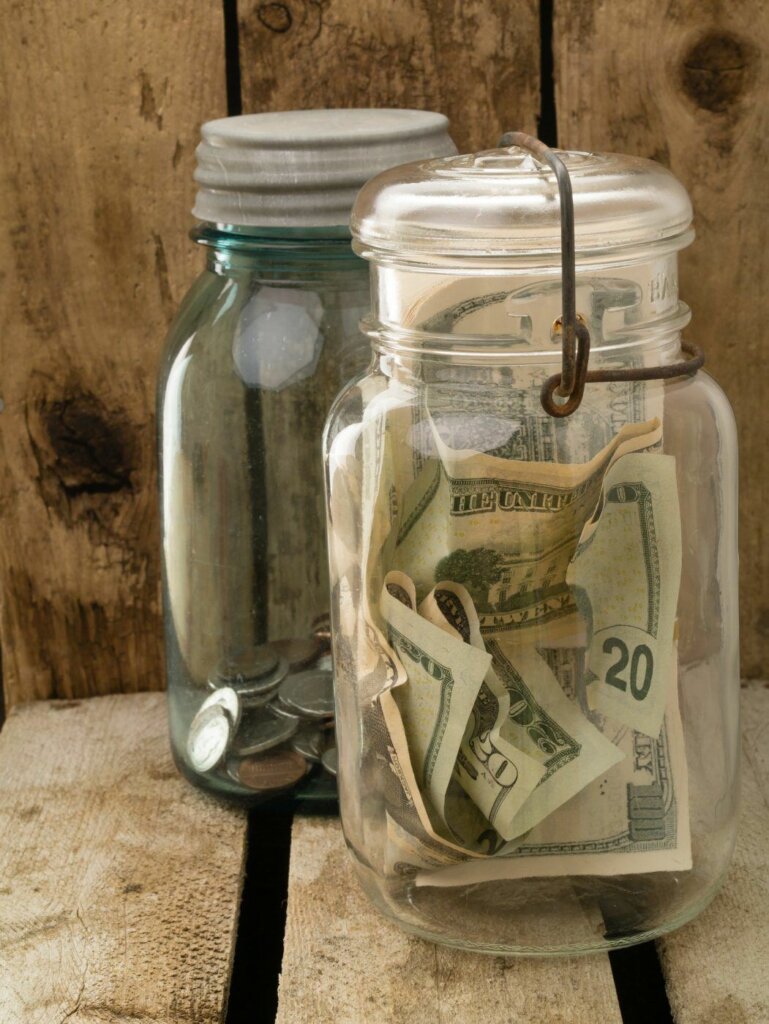
Talking about whether homesteading saves money is one of those conversations where it feels like there's no clear answer because there are many things to consider. Having the right outlook and evaluating beyond just the upfront monetary costs or savings is key.
Listen in below to the full podcast, Episode #219 Does Homesteading Really Save Money? of the Pioneering Today Podcast, where we don’t just inspire you, but give you the clear steps to create the homegrown garden, pantry, kitchen and life you want for your family and homestead.
Counting the Costs
Homesteading is a lifestyle I fully embrace and a passion I’ve had for most of my life. I have accumulated knowledge from five generations of people with essential homesteading skills passed down to me in one way or another.
Saving money and living frugally is ingrained in me from my dad, who was raised during the great depression era. Living a self-sufficient pioneer-inspired life, busting through the homesteading myths and using tips for success kept me counting the cost of this lifestyle.
I came up with 10 ways to afford homesteading when you're broke out of necessity. The 5 homesteading skills that will save you money and how to make money homesteading are things I’ve done and lived through to keep this wonderful lifestyle that I love.
Learning how to buy a homestead and what to look for put us on the path of living a self-sufficient, healthier lifestyle as modern pioneers, and we are gratefully changed forever. Growing your own food is nutritionally superior for overall health and energy levels.
Initial Investments and Returns on Investments
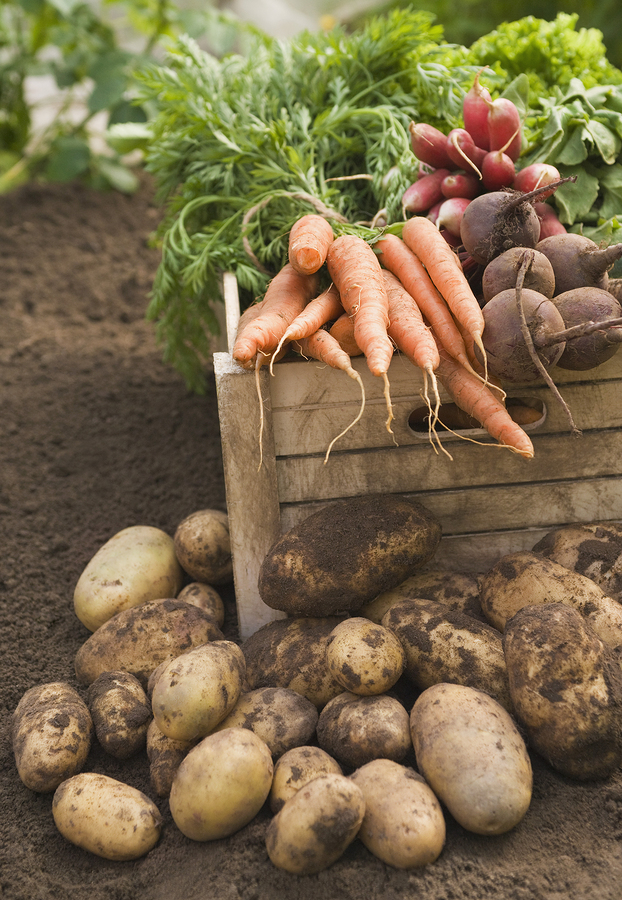
Let’s discuss how one can evaluate whether homesteading saves you a lot of money. Now don’t get me wrong, there are times when breaking even to continue this lifestyle has its trials. Determine why you want to live this lifestyle and then realistically count the costs.
We evaluate whether we can buy something at the same quality level as we would raise it. Our meat birds, for example, are pasture-raised and organic. In comparison, if I can buy them cheaper with the same practices, I would. It’s been close at times, but it’s still more frugal to raise them ourselves.
I can, however, purchase meat birds at the grocery store for far less money than what it costs me to raise them. They’ll have been conventionally raised and potentially fed GMO vegetarian feed, which I don’t want for my birds.
So when looking at return on investment and counting the cost, knowing the quality of what you're comparing to is important.
Structures
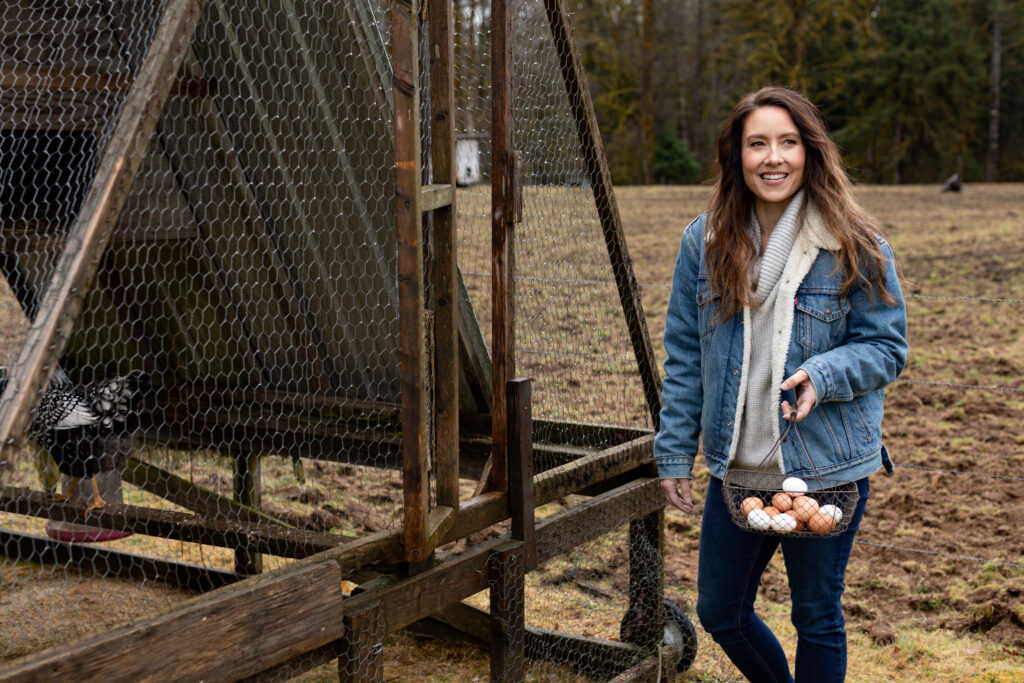
When raising animals for food, infrastructure is a cost you want to consider as a return on investment over time. Start small and get creative, or work with what you have by making necessary repairs.
- Barns – A safe place that provides shelter, heat in the winter and shade in the summer is wonderful to have for your animals. Upkeep, electricity, water sources and possibly increased taxes on your property are expenses you may incur.
- Animal Shelters – Chicken coops, pig or goat pens, cattle feeders, waterers and fencing. If predators are a problem, there are costs you will have for animal shelters.
- Wood Sheds – We use firewood to heat our home, and it’s plentiful where we live. Buying it is an expense; it is necessary to have a wood shed to keep it dry if you live in inclement weather like I do. But just know, an inexpensive tarp works until you can build a lean-to-type structure.
- Tool Sheds – Tools are what keep the homestead running smoothly. We try and have a dry space with shelves and lighting for easy access. In the long run, keeping your tools functional and protected from the elements is worth the investment.
Fencing
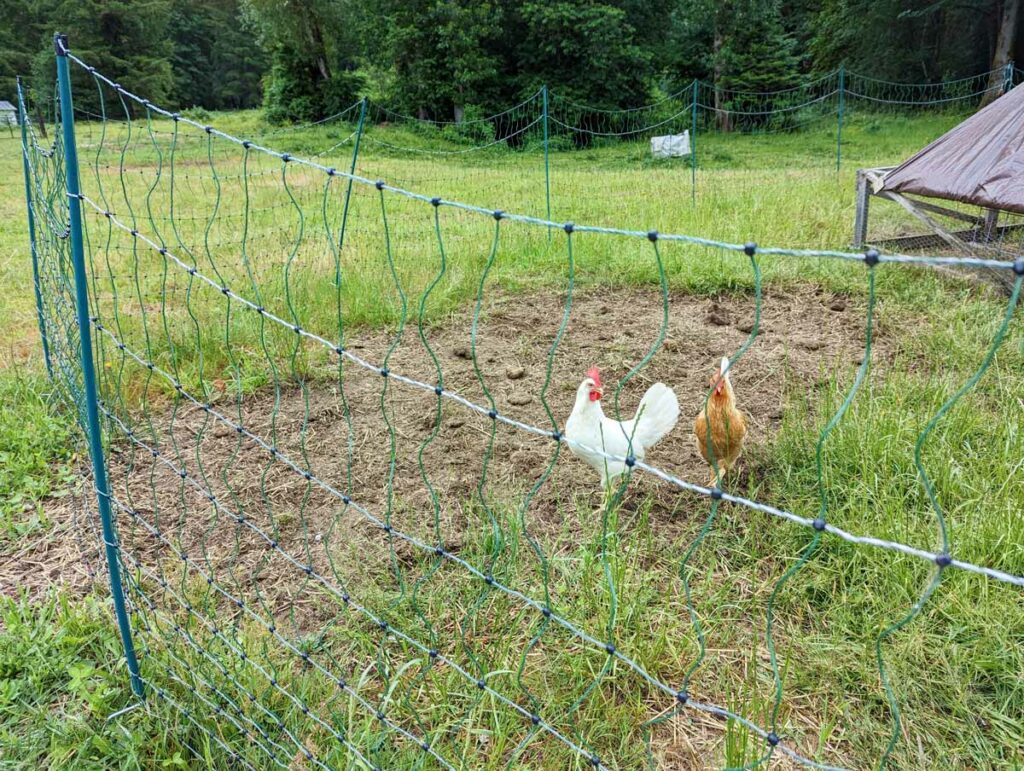
Fencing is definitely an expense on a homestead that gives a great return on your investment. It keeps your animals in and predators out. I lost a whole flock of chickens one year when free-ranging due to predators I didn’t know we had until it was too late.
Fencing around my garden and fruit trees is a must where we live. We have deer, moose, elk, and rabbits trying to eat our vegetables and fruit trees, and bright pink flagger tape didn’t work well enough to keep them away.
Depending on your environment, fencing is something you will use if needed to protect your food source, so in the long run, it’s worth the expense. Try different ideas for fencing materials; it doesn’t have to be store-bought wire fencing and metal posts, there are many DIY ideas to save money.
Additional Power & Water Sources
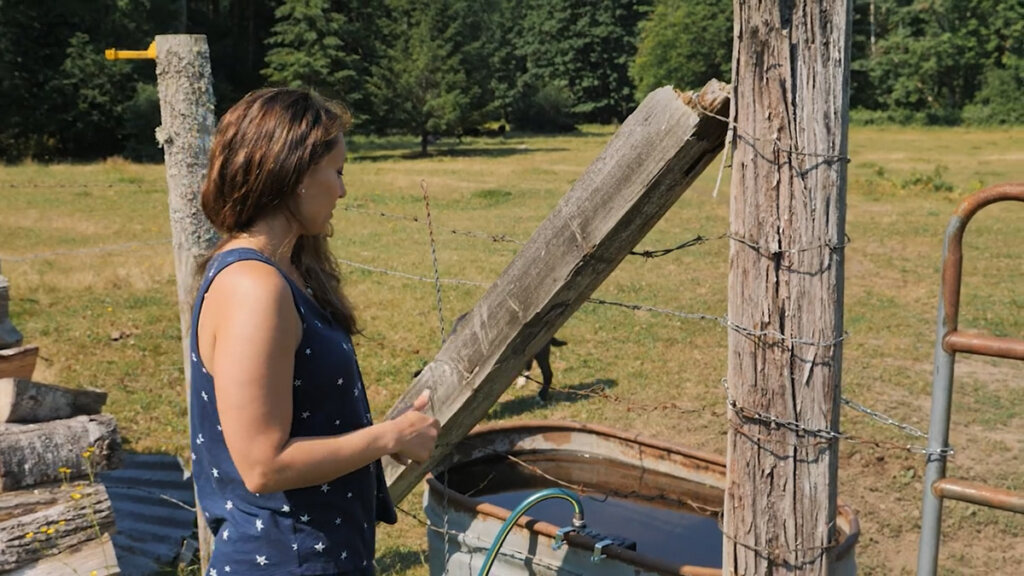
Once you establish your outbuildings and garden plot, water sources and possibly additional power to give heat and light is an expense you may have for a long-term return on your investments. LED lighting is an energy saver and cost-effective on your electric bill over time.
Having water set up is also great if you ever want to take a vacation, as this is easier for caretakers. Learn these homestead vacation tips so you can go on vacation without worry!
Garden Spaces
- Soil – Testing your soil and adding amendments to get the most yield is well worth the cost. Your soil will get better and better over time with these practices. In return, more food on the pantry shelves filled with healthy food and lots of it.
- Seeds – Vegetable and herb seeds are an initial investment; heirloom seeds will help lower your expenses over time. Heirloom seeds for your specific zone will give you the gift that keeps on giving because you can save seeds to grow future crops.
- Raised Beds – Hauling in soil to build any garden bed is an initial investment and a good one to increase your vegetable yield over time. Soil is an expense you can save on if you test the soil and amend it for growing vegetables. Just know raised beds aren't mandatory for gardening. They can help speed up a garden if your soil needs some work, but I garden straight into the ground and have for years.
Unexpected Expenses
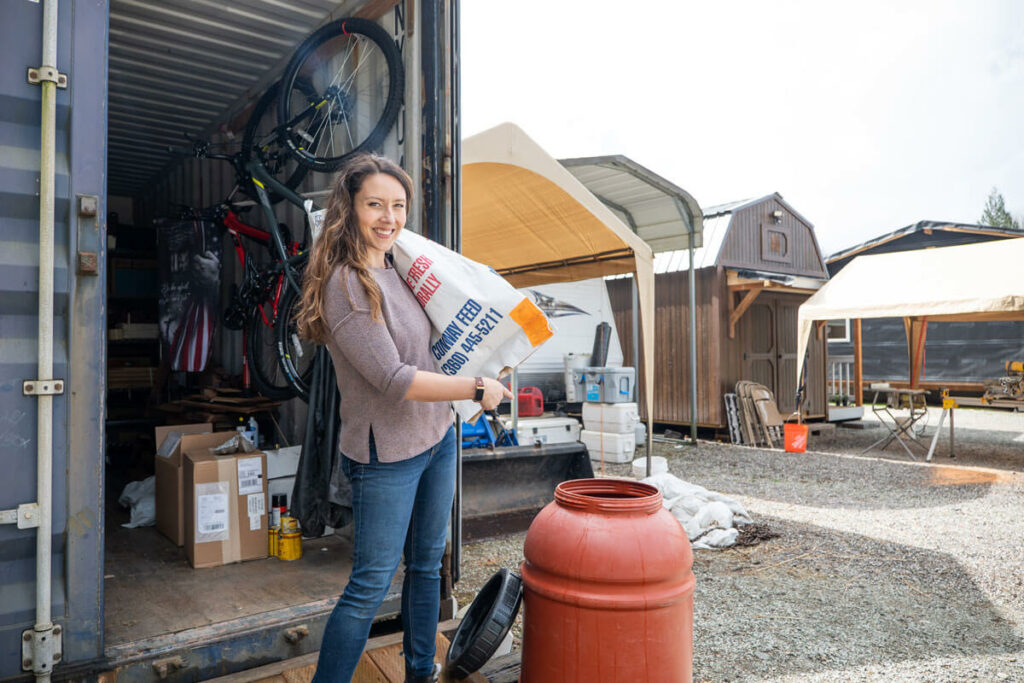
The ebbs and flows of homesteading are a part of the modern pioneer lifestyle. We can’t control the weather, animals getting sick or injured, inflation causing feed prices to rise, and any other unexpected things happening in life. There will always be unforeseen expenses on a homestead; expect it!
Electric Bills
The rising cost of electricity is challenging on a homestead. In the Pacific Northwest, where we live, winter requires us to use electricity to heat the water tank so the chickens, pigs and cattle can drink. Heat tape on pipes and heat lamps for chicken coops will also raise the electric bill.
I need to account for more usage during certain months of the year. The extra cost is still an investment we are willing to make because, in the long run, we will have a lot of chicken, pork and beef in the freezers, enough meat to feed our family for a year.
DIY Projects Cost Money
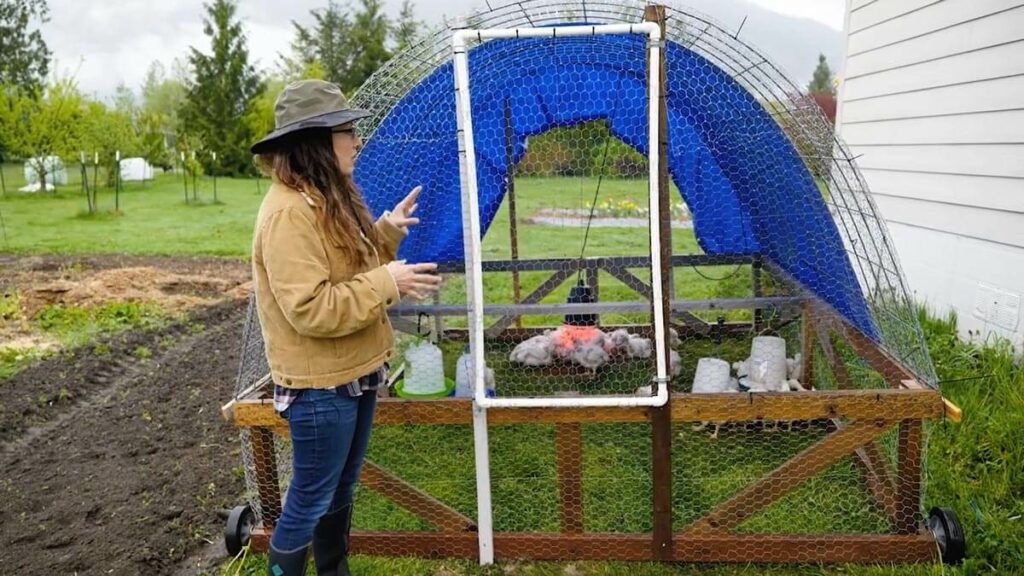
There are so many creative and clever ideas for great DIY projects on the homestead. I get so excited about making improvements and trying new things, but they cost time and money. Calculate the cost before jumping in so you don’t blow the budget.
My husband is really talented when it comes to making something work with little or no resources (like the chicken tractor for our meat birds pictured above). Using what's on the homestead, trading, and bartering with a friend or neighbor can help save money if you have the skills to do the work and the tools to get it done.
Vet Bills
Animals are an asset on the homestead, providing various food sources for your family. Time, attention and daily responsibilities are required. Calling a vet to the homestead is expensive, and medicines are also.
Educating yourself and seeking knowledge from other homesteaders could save you money regarding animal husbandry. There are herbal remedies for animals that you can make from medicinal herbs you grow and preventative measures you can take to keep them safe and healthy.
Quality Counts
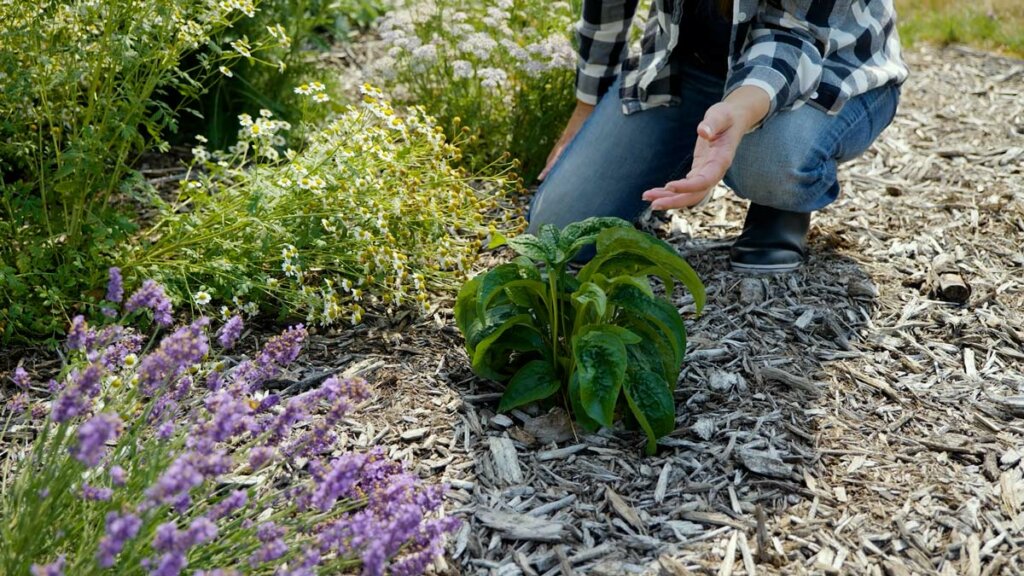
They just don’t make things the way they used to. I value the older tools like gardening hoes and shovels we have acquired from farm auctions that are superior in quality to new ones. Saving a buck or two on an inferior product will cost you more in the long run.
I learned the hard way that cheaper is not better. Cheap tools and mechanical items break more easily, usually can’t be repaired, and don’t last as long. You get what you pay for is a true statement regarding quality equipment. It's a balance I have definitely learned over the years.
Tracking Your Expenditures
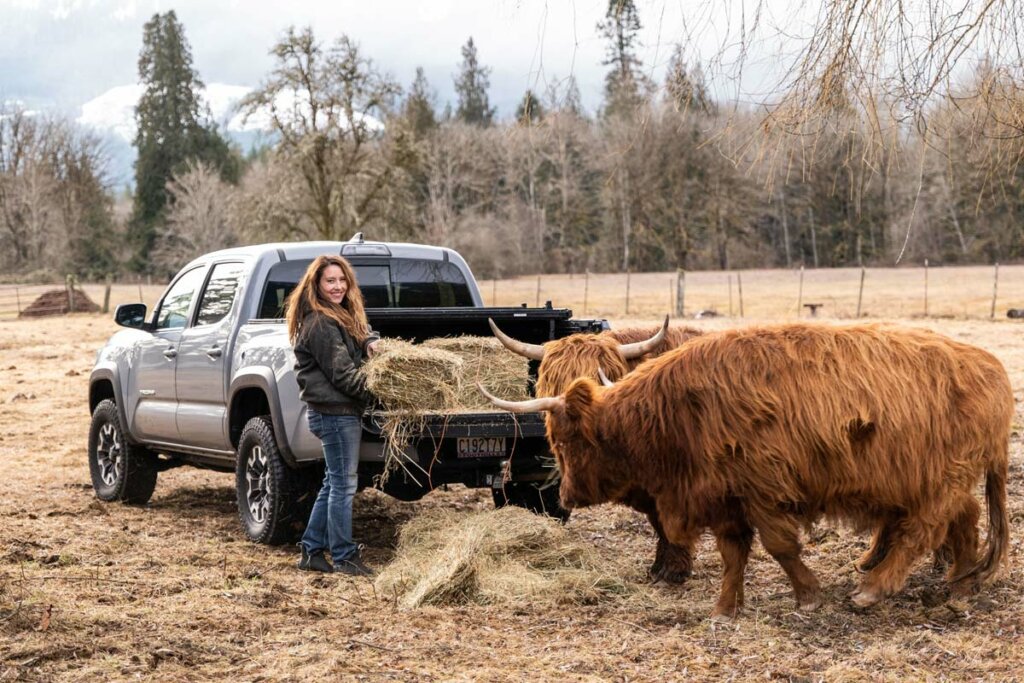
We keep a log of how much we're spending on our animals. I think it's important to know the financial and final costs per pound. If you aren't tracking your expenditures, you don't know if there's room to improve, helping reduce costs. Check out this podcast with Joel Salatin on maximizing your homestead for profit.
Some ideas may include improving your pasture. If you have a lot of acreage but some of it is in trees instead of grass, consider animals that could utilize that space. Other options might be increasing the size of your vegetable garden.
Little tweaks here and there over time will fine-tune areas to help save costs.
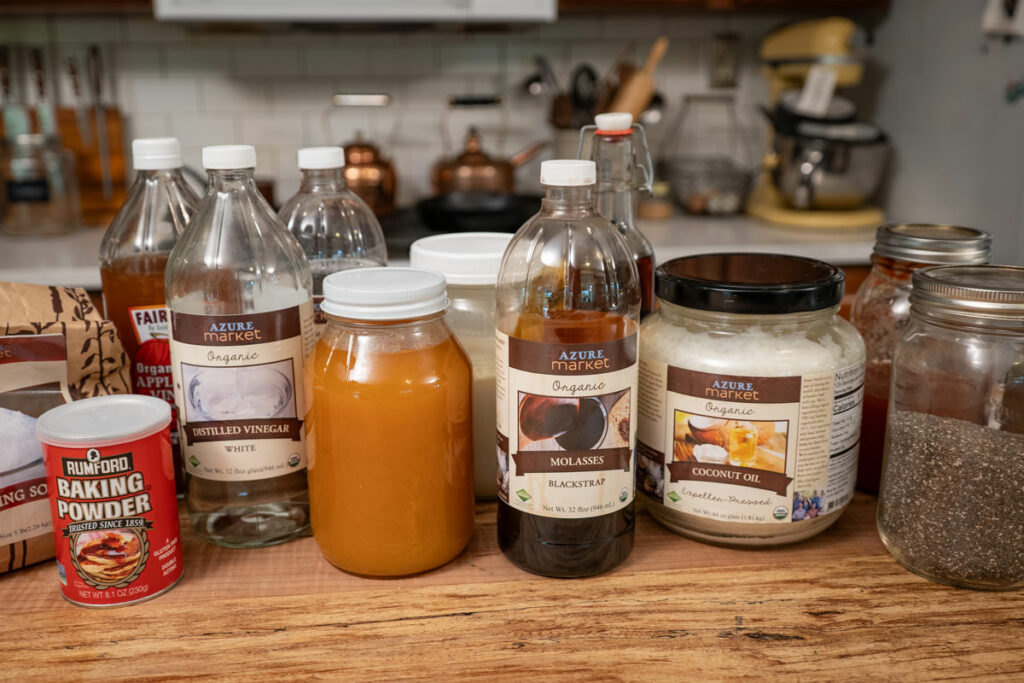
Surprisingly, many people don’t keep a basic budget to see if they can save money on food. Keeping track of food from the grocery store compared to the cost and yield from a vegetable garden is one way to keep homestead costs down.
Record keeping and a food budget are key! Here are my best tips on how to save money on groceries.
Consider the health benefits of the foods you raise and grow on your homestead versus the cheap food from the grocery store (avoid processed and GMO or bioengineered foods). The nutritional value and energy level we experienced outweighed the cost difference for our family.
I used to have health issues that were directly related to the foods that I was eating. By changing my diet, even though it wasn't an overnight process, I was able to heal from those issues. Evaluate the reasons you are homesteading to help with the decisions you make.
Healthier non-GMO foods and organic store-bought will be more expensive, but when you weigh out the health benefits, you can’t put a price tag on nutritional value for your health.
If you still need to do that with your homesteading life, start now and keep detailed records. If you already are keeping track, see if there are ways that you can adjust those feed bills and bring your food costs down.
Be Flexible and Experiment
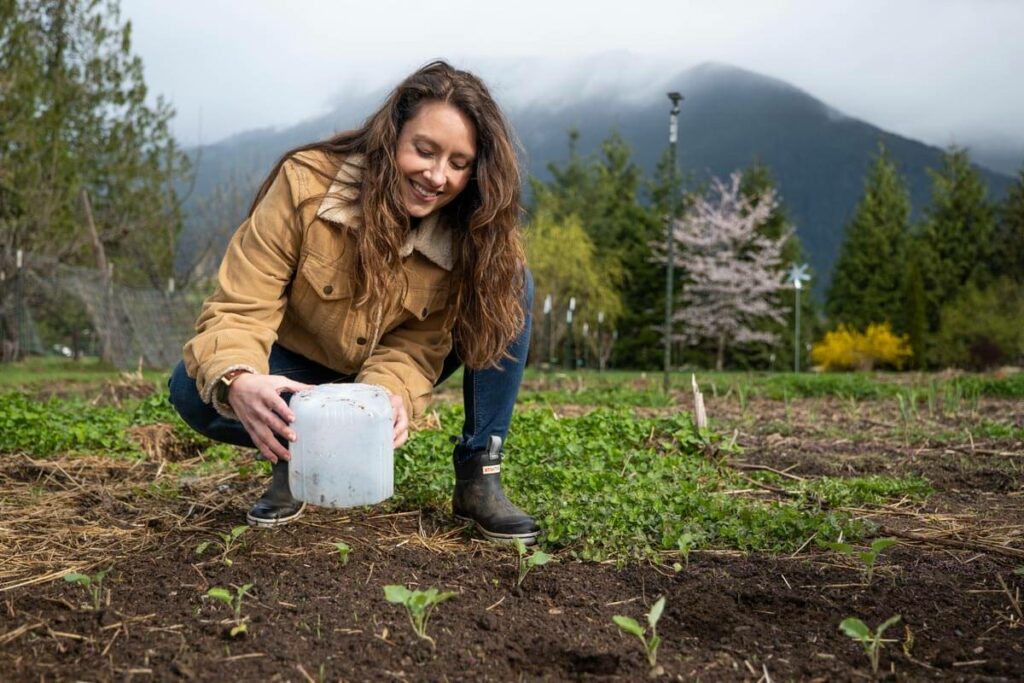
Whether gardening, animal husbandry or running your homestead, do what works best for you and your family. What works for me may not work for you. We all have different homestead styles and situations. I think whatever we can glean from each other that’s helpful is wonderful.
If you have tried an idea or raised an animal that just didn’t work out for you, it’s okay. Be flexible and try something different. Our families and situations are always in flux, and what might not work today could work in the future. The beauty of homesteading is seeking what works for you!
Where Homesteading Saves Money
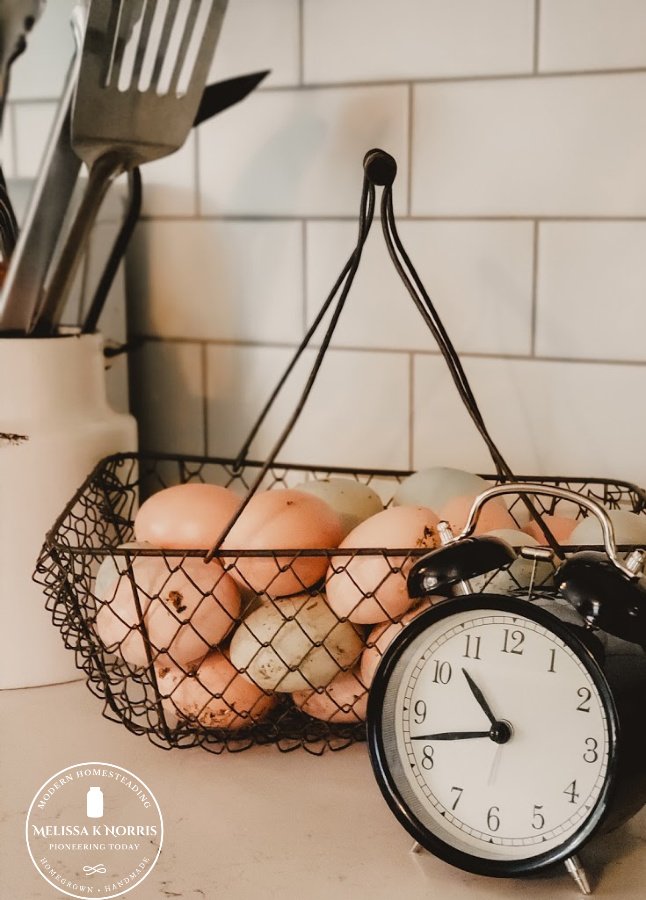
To summarize, here are the areas where homesteading can save you money:
- Bartering – It’s a wonderful way to interact with the community, building relationships while using my 6 rules for bartering success to keep costs down on the homestead.
- Buying in Bulk – These 6 tips for buying food in bulk will help keep food costs down over time when managing your food budget.
- Cooking From Scratch – This cooking style is homemade, healthy, and cost-effective using my time-saving tips when cooking from scratch.
- Gardening – Planning strategies at home or in a community will show you that gardening does save money with homestead costs.
- The Pantry – My old-fashioned depression-era pantry is filled with ideas on how to save money on groceries (18 Must-Try Tips) to help you fill your pantry economically.
- Preserving – Check out my podcast and see if home canning is really worth it? Does it save money to can at home? I love canning, freezing, dehydrating and freeze-drying; filling my pantry with preserved foods is a worthwhile investment for my family.
- Livestock – Running the homestead costs money, and the benefits of homesteading with animals are more cost-effective using my 5 tips to raising livestock for food & stocking up on animal feed (+ how much to feed animals)
- DIY Household Cleaners – Living a pioneer lifestyle using clean eating practices segways into living in an environment using these 5 homemade natural cleaner recipes for your continued healthy lifestyle.
- Overall Health – Having experienced serious health issues, by using dietary and lifestyle changes on healing naturally – my story part 1, I got my health back on track. My hope is that this may be an encouragement to you if you struggle with any health issues.
Verse of the Week: Psalms – 100:3
Where to Find Amy
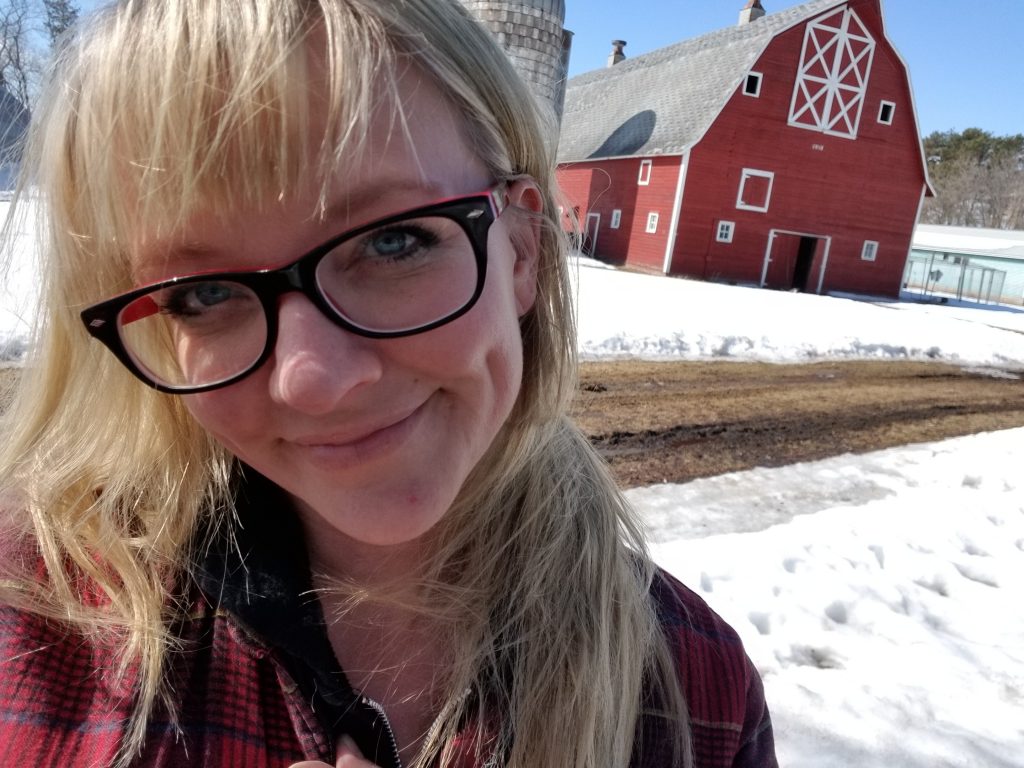
Other Articles You May Enjoy
